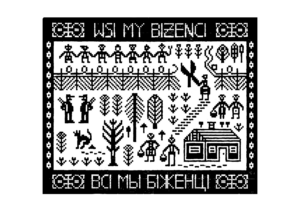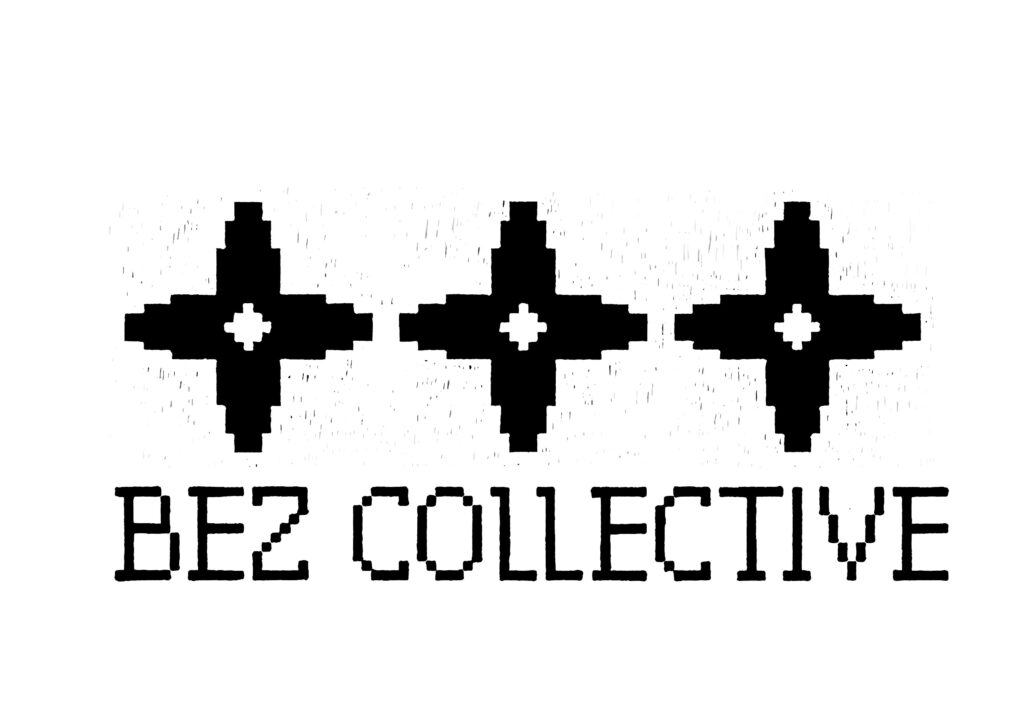bez
1. «krzew lub niskie drzewo o fioletowych lub białych kwiatostanach; też: kiść kwiatów tej rośliny»
2. «krzew lub niskie drzewko o drobnych kwiatach wydzielających mdły zapach i czarnych lub czerwonych owocach»
bez
«przyimek komunikujący zwykle brak, nieobecność czegoś lub kogoś, np. Las bez grzybów. Odejść bez pożegnania.»
1. lilac «a shrub or low tree with purple or white inflorescences; also: a bunch of flowers of this plant»
2. elderberry «a shrub or low tree with small flowers emitting a faint odour and black or red fruit»
without
«a preposition usually communicating the absence of something or someone, e.g. A forest without mushrooms. To leave without saying goodbye.»
We are a small collective working in the region of belarus-poland borderline to resist racist state violence and to act in solidarity with people on the move. Even though we formed as a result of coming together to respond to the situation at this borderline, we are aligned and involved in multiple other struggles. We aim to avoid unjust hierarchies in our organising and in our living.
We aren’t involved in this struggle purely because we want to respond to this “crisis”. We understand crisis to be the norm now, even if it seems to subside at times or changes intensity. In this exploitative end-of-the-world capitalism, crisis is indeed a constant undercurrent of our lives. We are here also because this particular geography is meaningful to us. We have here familial roots, stories of our folks, graves of our loved ones. We have monuments to pogroms of people whose identities meant that they became victims and survivors. Some of these histories are also our folks histories, many of them are being erased and forgotten, many are not collectively reckoned with.
In this struggle, we don’t want to work from a position of self-aggrandising saviours who centralise our minuscule participation in a world-wide and as-long-as-humanity, effort to transgress the borders that are created upon our bodies to conquer, divide and disempower us. But we don’t want to work from a performative selflessness either. We have personal reasons to engage in this work, stories and experiences that generate rage, against borders, walls, prisons, colonialism and all the interlinking elements of this puzzle we call “the system”. We don’t want this fortress, we want this kind of europe to fall. We refuse the logic of state borders and we don’t believe that they can be excused. We don’t want to fight for a right-to-move, since we believe in the freedom-of-movement. When life itself began by and in movement, movement cannot be a right, arbitrarily given by any institution, it is a fundamental function of our aliveness.
We do and want to do other things here, including working to sustain the diversity of culture and language of this region; working with the land by growing, caring and foraging; practising transformative justice by creating a space for as much care, healing and conflict resolution as possible; educating ourselves and each other; learning and practising anti-oppression in our work and our living.
Some things that we like: queer joy, abolition, decolonisation, total liberation, loving justice, anarchy, acab, feminism, food sovereignty, permaculture, cats, broken fences, songs, sunsets…

